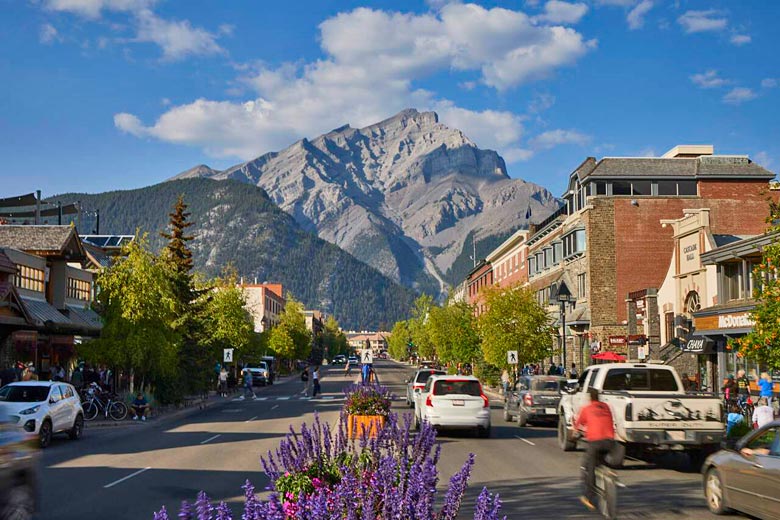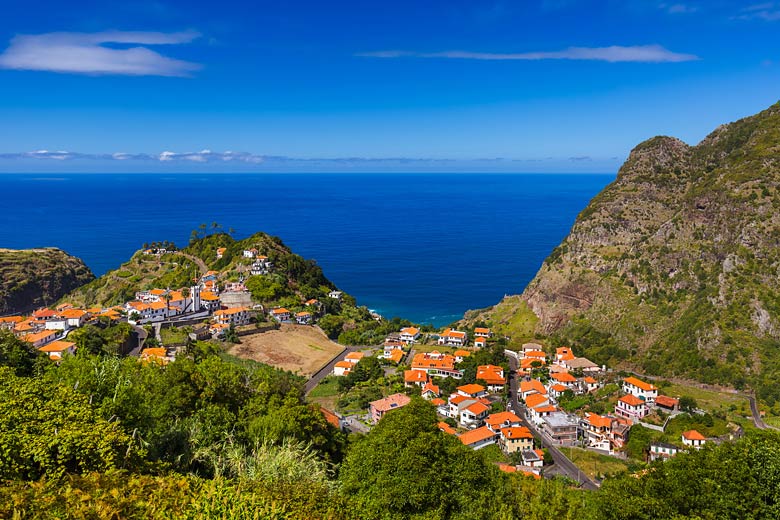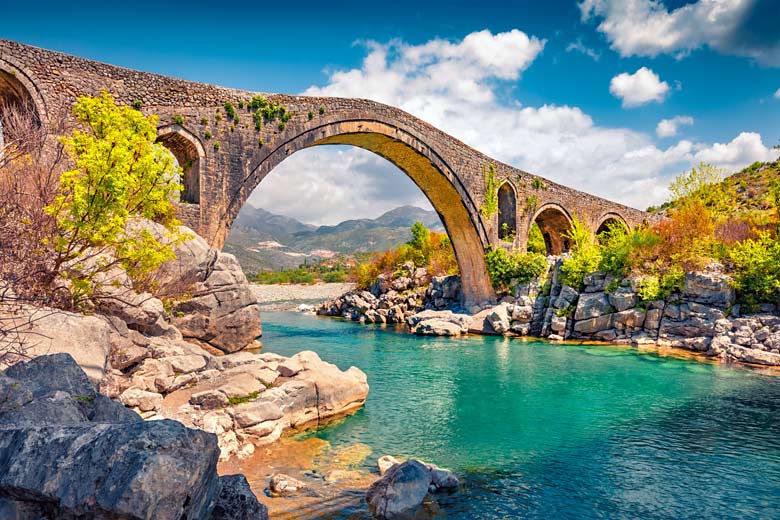Why you need to visit the Ardèche
This watery wonderland in the southeast of France has incredible views, outdoor adventures for all ages and millions of years of history.
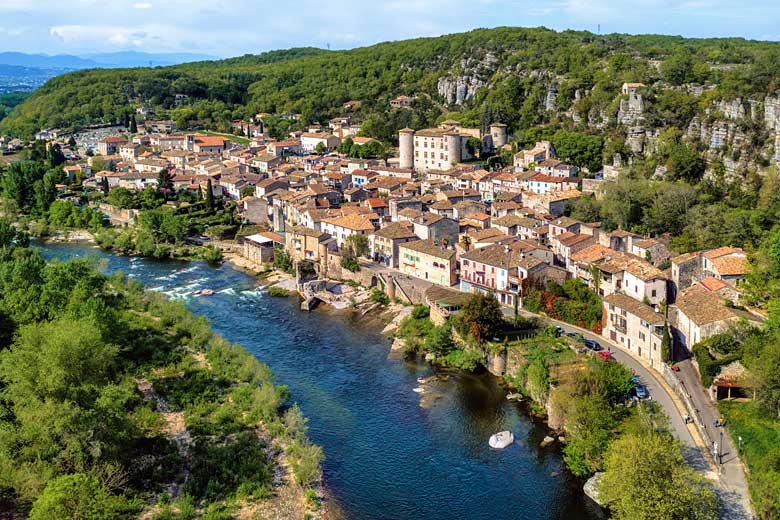
Here, we look at just some of the tantalising reasons to head to the Ardèche* this summer, from the scenery and history to the wine and tasty festivals that roll through the region.
Where to stay in the Ardèche: find affordable accommodation everywhere from hotels to holiday parks with Pierre & Vacances*.
For impossibly dramatic nature
Slicing through a limestone plateau with more bends and twists than a rollercoaster, the Ardèche River is a ribbon of blue in a landscape of moss green and cream.
The limestone cliffs were formed from the skeletons and shells of millions of marine creatures, which condensed over time to make these porous cliffs, rising to 300 metres high. Millions of years ago, the region lay under the sea.
The Ardèche can be broadly categorised into two regions: the gorges and the mountains (or 'monts'). The former, a regional park, sees the bulk of the tourists, attracted by the Pont d'Arc, the Ardèche's cover star. Further north, the 'monts' are verdant with little villages that seem to cling to clifftops, and reward intrepid travellers.
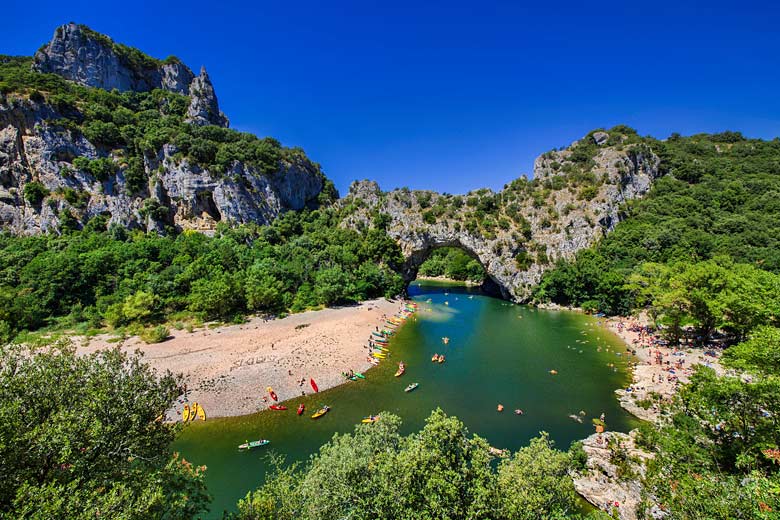
Pont d'Arc, a magnificent rock arch, bridges the river at Vallon-Pont-d'Arc. While there's often a trail of tourists admiring it from the road, your best bet is to descend the Ardèche by kayak.
It's difficult to appreciate just how immense the rock arch is from land (54 metres high), but with a kayak, you can paddle in and out of the little caves at the foot of the arch itself.
Itineraries range from 5 miles / 8 km to 20 miles / 32 km, and if you're prepared to wild camp, there are two bivouac spots at Gaud and Gournier, which let you to split the trip over two days. As they're within a nature reserve, you'll need to book spots in advance with the tourist office.
A hiking trail runs parallel to the majority of the river. The foliage is dense, so you don't get panoramic views the whole way, but the trail regularly emerges at shingle beaches, which make excellent spots for swimming.
The very fit can tackle the lot in one day (15 miles / 24 km), but count for around 12 hours as it's rough terrain. Most people split it over two days and camp at one of the aforementioned bivouac spots.
For the wine
The Ardèche may not be the best-known of France's many wine regions, but this absence of ancestral wineries has given rise to a certain creativity around the wine experiences on offer.
At Domaine Walbaum, a manor house hotel set among vines, wine is central to the experiences on offer. There's wine yoga, vineyard bicycle tours, and 'wine kayaking', a trip down the Ardèche River with a floating apéro. Choose from walking tours and tastings, which you can still book onto even if not staying on-site at the hotel.
The limestone cliffs are holier than a cartoon Emmental, which means that they're a veritable warren of caves (more on that later). Patenting the term 'Spéléoenology', Grotte Saint-Marcel runs caving and wine tasting combinations, for a blind wine tasting like no other.
You're given a boiler suit and taken sliding, crawling and clambering through the muddy belly of the Ardèche, before enjoying local wines deep underground. The total sensory deprivation forces you to concentrate entirely on the taste and smell of the wine.
For ancient history that beggars belief
Long before tourists were sipping syrah in the Ardèche's caves, they were home to prehistoric people. Grotte Chauvet was discovered in 1994, along with a collection of cave paintings, thought to be up to 36,000 years old.
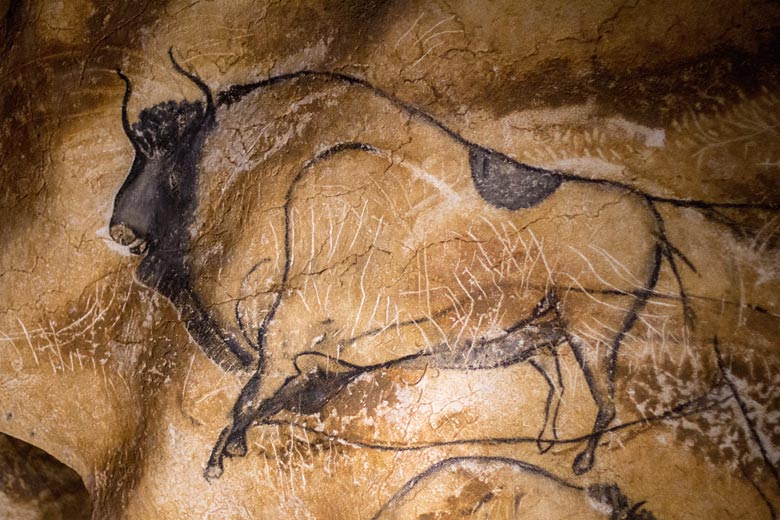
The original cave is off limits for preservation reasons, but at the excellent replica, Grotte Chauvet 2, guided tours take visitors around each of the paintings, explaining the long extinct wildlife featured, and how the artists of yesteryear signed their work.
To unwind & take the slow road
After kayaking, swimming and sliding through caves, a spa feels all the more rewarding. Les Thermes de Vals-les-Bains, built almost entirely in wood beams like the hull of a sailing ship, has indoor and outdoor pools, cold water 'therapy' and gorgeous views over the surrounding wooded hills.
The Route des Belvédères is a road trip like no other. In the space of 15 miles / 24 km, with hairpin bends and vertiginous drops, 11 different viewpoints look down over the Gorges.
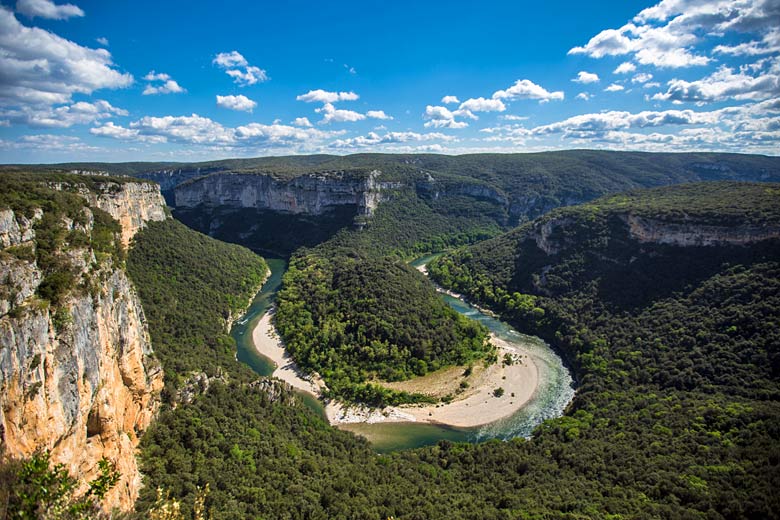
From them, you may spot vultures, buzzards and falcons wheeling in the wind. Some of the caves visible, so impossibly remote they look as though they'd been pecked into the rockface by a giant woodpecker, were the hideouts of French Resistance fighters during WWII.
For festival feels
The Ardèche may be remote, but that doesn't stop the locals from throwing their share of parties. Les Castagnades, the chestnut festival, is the highlight of the calendar.
Travelling from village to village between mid-October and mid-November, locals and visitors alike eat crème de marrons (chestnut cream, with a Nutella-like consistency) and make all manner of dishes with chestnuts, to the soundtrack of traditional Ardechois folk music.
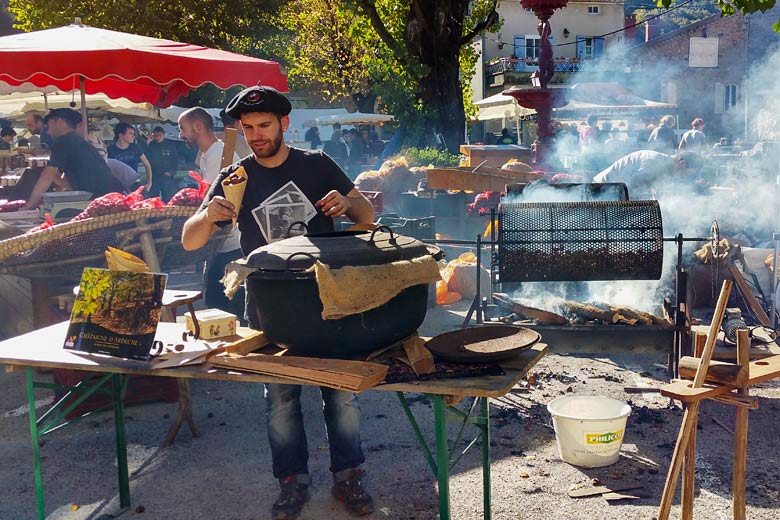
Outside of festival season, you can still sample the Ardèche's speciality. Marrons Imbert in Aubenas is the place to go for candied chestnuts and crème de marrons.
Getting there
Montpellier and Marseille's airports are both roughly two hours from Vallon-Pont-d'Arc, in the heart of the Ardèche. If travelling by train, Montelimar is the closest mainline station. Having a car is indispensable for many of the sights.
Climate in the Ardèche
| Jan | Feb | Mar | Apr | May | Jun | Jul | Aug | Sep | Oct | Nov | Dec | |
|---|---|---|---|---|---|---|---|---|---|---|---|---|
| Maximum daytime temperature °C |  7 7 |
 9 9 |
 12 12 |
 15 15 |
 20 20 |
 24 24 |
 27 27 |
 27 27 |
 23 23 |
 18 18 |
 11 11 |
 8 8 |
| Hours of sunshine (daily) | ||||||||||||
| Days with some rainfall |  12 12 |
 11 11 |
 12 12 |
 12 12 |
 13 13 |
 10 10 |
 7 7 |
 8 8 |
 9 9 |
 11 11 |
 11 11 |
 12 12 |
The above guide shows the climate in Aubenas. Find out more conditions across the country in our complete guide to the climate in France.
Ready to go? Browse the current online offers on holidays with Pierre & Vacances.
More about the South of France
South of France by month
Jan Feb Mar Apr May Jun Jul Aug Sep Oct Nov Dec
Explore holiday destinations
- Beach holidays
- City breaks
- Family holidays
- Half term holidays
- Spring holidays
- Summer holidays
- Autumn holidays
- Winter sun holidays
- Honeymoons
- Coolcations
- Compare places
- Ski resorts
Save with latest deals & discounts
- Holiday offers
- Top travel brands
- Airlines & flights
- Discount hotels
- TUI
- Jet2holidays
- Neilson
- Marella Cruises
- Holiday Extras
- Pierre & Vacances
- Caledonian Travel
- Club Med
Airport parking
- Manchester Airport
- Stansted Airport
- Bristol Airport
- Luton Airport
- Birmingham Airport
- Edinburgh Airport
- Gatwick Airport
- Glasgow Airport
- Newcastle Airport
Airport lounges
- Manchester Airport
- Birmingham Airport
- Bristol Airport
- Edinburgh Airport
- Glasgow Airport
- Heathrow Airport
- Newcastle Airport
- Stansted Airport
- Gatwick Airport
Be inspired
Get your weekly fix of holiday inspiration from some of the world's best travel writers plus save on your next trip with the latest exclusive offers
We promise not to share your details


















